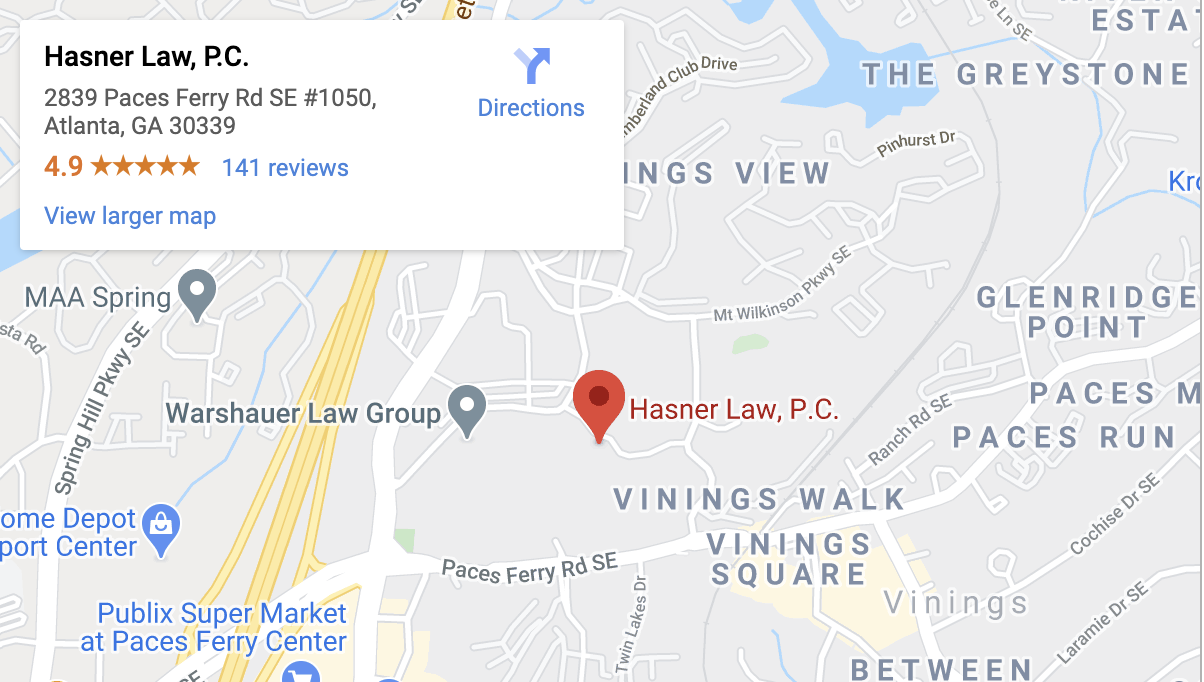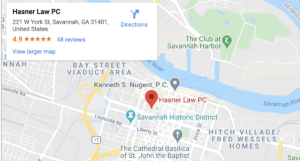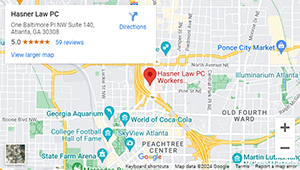How Georgia Statutes Affect Personal Injury Claims

The laws governing personal injury claims in Georgia can be complicated and difficult to understand. However, these laws can significantly impact your ability to recover fair compensation after being injured by another person. It is important to understand your legal rights after an accident or injury.
A personal injury lawyer understands the statutes that affect personal injury claims in Georgia.
An attorney also understands how these laws could prevent you from recovering compensation if you do not follow the laws carefully. He also understands how to use the laws to help you hold the party responsible for your injury liable for your damages.
When you hire a personal injury attorney to handle your claim, you do not need to worry about understanding the laws. However, it can help to have a basic understanding of how some statutes in Georgia can affect the outcome of your injury claim.
Three Georgia Statutes That Could Affect Your Personal Injury Case
Many statutes could impact your case. However, three of the most common statutes that affect a wide variety of personal injury claims include:
Georgia’s Statute of Limitations

A statute of limitations sets a deadline for filing a personal injury claim. After the deadline passes, you are barred from seeking damages through a court proceeding. All states have statutes of limitations for personal injury claims. The deadlines vary from state to state. For most personal injury cases in Georgia, the statute of limitations is two years from the injury date (GA Code § 9-3-33 (2019)).
The two-year statute of limitations applies in cases involving car accidents, product liability claims, wrongful death, medical malpractice, assault, premises liability claims, construction accidents, dog bites, and many other injury claims.
However, there are some exceptions to the two-year statute of limitations for personal injury cases.
In some injury cases, the statute of limitations may be tolled. Tolling involves extending the statute beyond the two years. For example, if the victim is a minor, the statute of limitations is paused until the minor reaches 18 years of age.
Another example of tolling the statute of limitations involves the discovery of an injury. If a person could not have reasonably discovered an injury until later, the statute of limitations might be extended. Also, if the party responsible for an injury leaves Georgia before a lawsuit is filed and served on the person, the statute of limitations could be tolled until the person returns to the state.
Claims involving government entities have a different deadline for filing claims. Statutes might require a victim to provide a notice of claim to the government agency within months after the injury. If the victim fails to file a notice of claim, the victim loses the right to file a lawsuit.
The deadline to file a notice of claim with the government entity could be as short as six months from the date of your injury. Because local governments can pass laws setting the deadlines for filing a notice of claim, it is always best to contact a personal injury lawyer as soon as possible after an injury involving a government vehicle, employee, or property.
Comparative Fault Laws in Georgia
Comparative fault statutes in Georgia can significantly impact the amount of money you receive for your personal injury claim. The comparative fault theory involves assigning damages to negligent parties based on their portion of fault for causing the accident or injury.
In other words, each negligent party in a personal injury lawsuit is responsible for his or her damages based on the percentage of fault assigned to that party for the cause of the accident.
Four states and the District of Columbia use a pure contributory negligence standard for personal injury cases. If you contribute to the cause of your injury in any way, you cannot recover any money for your damages.
Other states use a pure comparative fault standard whereby you can be 99 percent responsible for causing your injury and still recover compensation for one percent of your damages.
Georgia uses a modified comparative fault standard for personal injury cases. If you are less than 50 percent at fault for the cause of your injury, you can recover compensation for your claim. Victims who are more than one-half at fault for the cause of their injuries cannot receive any money for damages.
However, the court reduces the amount of money you receive for your damages by the percentage of fault assigned to you for causing your injury. In other words, you cannot recover full compensation for damages if you contributed to the cause of the accident.

For example, you were involved in a motorcycle accident. The defense team argues that you were speeding at the time of the crash as you raced through an intersection with a yellow light. The jury finds that you were 20 percent to blame for the cause of the yellow light accident because you were speeding through the intersection.
The amount of money you receive for your claim is reduced by 20 percent. Instead of receiving $200,000 for your personal injury claim, you only receive $160,000.
Insurance companies use allegations of comparative negligence to undervalue and deny injury claims. Contact a lawyer if the insurance company claims that you contributed to the cause of your accident.
Georgia’s Wrongful Death Statute
Some types of personal injury cases have statutes that directly relate to that specific cause of action. Georgia’s Wrongful Death Act is an example of one of those cases.

The Wrongful Death Act contains laws that apply only to wrongful death cases. For example, the statutes define who can file a wrongful death claim in Georgia. Only surviving spouses, children, and parents can file a wrongful death claim. Parents may only file a claim if the child was not married and did not have any children at the time of death.
The statutes also dictate how damages are divided in a wrongful death action. Damages are divided among the family members according to the terms of the person’s will. However, if the person did not have a will, the damages are divided according to the statute.
Spouses receive all compensation if there are no children. If the person had children, the spouse receives one-third of the money, and the children split the other two-thirds of the money equally. If a child predeceased a parent, there are special rules for handling that situation.
Seek Help From an Experienced Personal Injury Lawyer
The above statutes are just three examples of laws that impact personal injury claims in Georgia. Many laws can help you recover compensation for your damages. On the other hand, many laws can negatively impact your chance of recovering a fair settlement for your injury claim.
Victims are not expected to know and understand these laws unless they represent themselves. If you do not hire an attorney, you cannot use a lack of knowledge of the law to undo a mistake or error made in your case. The insurance company knows this and will take advantage of your lack of knowledge to cheat you out of the money you deserve.
Before you settle a personal injury claim or provide a statement regarding a claim to an insurance company, talk with a personal injury lawyer. A lawyer explains your rights and provides advice to help you recover the maximum amount of money for your injuries, financial losses, and other damages.






